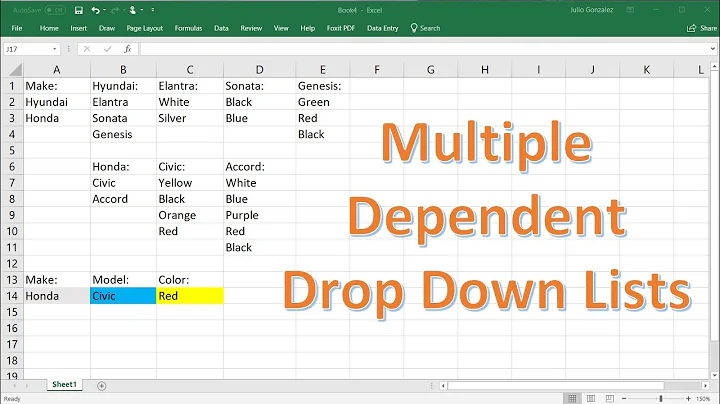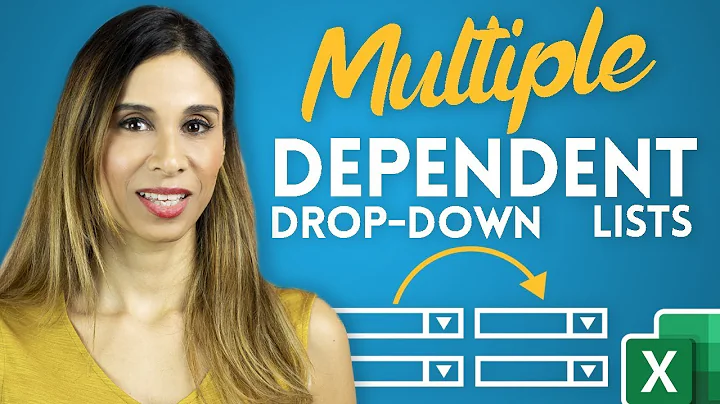attribute dependent on another field
Solution 1
Take a look at this: http://blogs.msdn.com/b/simonince/archive/2010/06/04/conditional-validation-in-mvc.aspx
I've modded the code somewhat to suit my needs. Perhaps you benefit from those changes as well.
public class RequiredIfAttribute : ValidationAttribute
{
private RequiredAttribute innerAttribute = new RequiredAttribute();
public string DependentUpon { get; set; }
public object Value { get; set; }
public RequiredIfAttribute(string dependentUpon, object value)
{
this.DependentUpon = dependentUpon;
this.Value = value;
}
public RequiredIfAttribute(string dependentUpon)
{
this.DependentUpon = dependentUpon;
this.Value = null;
}
public override bool IsValid(object value)
{
return innerAttribute.IsValid(value);
}
}
public class RequiredIfValidator : DataAnnotationsModelValidator<RequiredIfAttribute>
{
public RequiredIfValidator(ModelMetadata metadata, ControllerContext context, RequiredIfAttribute attribute)
: base(metadata, context, attribute)
{ }
public override IEnumerable<ModelClientValidationRule> GetClientValidationRules()
{
// no client validation - I might well blog about this soon!
return base.GetClientValidationRules();
}
public override IEnumerable<ModelValidationResult> Validate(object container)
{
// get a reference to the property this validation depends upon
var field = Metadata.ContainerType.GetProperty(Attribute.DependentUpon);
if (field != null)
{
// get the value of the dependent property
var value = field.GetValue(container, null);
// compare the value against the target value
if ((value != null && Attribute.Value == null) || (value != null && value.Equals(Attribute.Value)))
{
// match => means we should try validating this field
if (!Attribute.IsValid(Metadata.Model))
// validation failed - return an error
yield return new ModelValidationResult { Message = ErrorMessage };
}
}
}
}
Then use it:
public DateTime? DeptDateTime { get; set; }
[RequiredIf("DeptDateTime")]
public string DeptAirline { get; set; }
Solution 2
Just use the Foolproof validation library that is available on Codeplex: https://foolproof.codeplex.com/
It supports, amongst others, the following "requiredif" validation attributes / decorations:
[RequiredIf]
[RequiredIfNot]
[RequiredIfTrue]
[RequiredIfFalse]
[RequiredIfEmpty]
[RequiredIfNotEmpty]
[RequiredIfRegExMatch]
[RequiredIfNotRegExMatch]
To get started is easy:
- Download the package from the provided link
- Add a reference to the included .dll file
- Import the included javascript files
- Ensure that your views references the included javascript files from within its HTML for unobtrusive javascript and jquery validation.
Solution 3
Using NuGet Package Manager I intstalled this: https://github.com/jwaliszko/ExpressiveAnnotations
And this is my Model:
using ExpressiveAnnotations.Attributes;
public bool HasReferenceToNotIncludedFile { get; set; }
[RequiredIf("HasReferenceToNotIncludedFile == true", ErrorMessage = "RelevantAuditOpinionNumbers are required.")]
public string RelevantAuditOpinionNumbers { get; set; }
I guarantee you this will work!
Solution 4
I have not seen anything out of the box that would allow you to do this.
I've created a class for you to use, it's a bit rough and definitely not flexible.. but I think it may solve your current problem. Or at least put you on the right track.
using System;
using System.Collections.Generic;
using System.Linq;
using System.Web;
using System.ComponentModel.DataAnnotations;
using System.Globalization;
namespace System.ComponentModel.DataAnnotations
{
[AttributeUsage(AttributeTargets.Class, AllowMultiple = true, Inherited = true)]
public sealed class RequiredIfAttribute : ValidationAttribute
{
private const string _defaultErrorMessage = "'{0}' is required";
private readonly object _typeId = new object();
private string _requiredProperty;
private string _targetProperty;
private bool _targetPropertyCondition;
public RequiredIfAttribute(string requiredProperty, string targetProperty, bool targetPropertyCondition)
: base(_defaultErrorMessage)
{
this._requiredProperty = requiredProperty;
this._targetProperty = targetProperty;
this._targetPropertyCondition = targetPropertyCondition;
}
public override object TypeId
{
get
{
return _typeId;
}
}
public override string FormatErrorMessage(string name)
{
return String.Format(CultureInfo.CurrentUICulture, ErrorMessageString, _requiredProperty, _targetProperty, _targetPropertyCondition);
}
public override bool IsValid(object value)
{
bool result = false;
bool propertyRequired = false; // Flag to check if the required property is required.
PropertyDescriptorCollection properties = TypeDescriptor.GetProperties(value);
string requiredPropertyValue = (string) properties.Find(_requiredProperty, true).GetValue(value);
bool targetPropertyValue = (bool) properties.Find(_targetProperty, true).GetValue(value);
if (targetPropertyValue == _targetPropertyCondition)
{
propertyRequired = true;
}
if (propertyRequired)
{
//check the required property value is not null
if (requiredPropertyValue != null)
{
result = true;
}
}
else
{
//property is not required
result = true;
}
return result;
}
}
}
Above your Model class, you should just need to add:
[RequiredIf("retirementAge", "retired", true)]
public class MyModel
In your View
<%= Html.ValidationSummary() %>
Should show the error message whenever the retired property is true and the required property is empty.
Hope this helps.
Related videos on Youtube
Ahmet Dalyan
Updated on July 09, 2022Comments
-
Ahmet Dalyan almost 2 years
In a model of my ASP.NET MVC application I would like validate a textbox as required only if a specific checkbox is checked.
Something like
public bool retired {get, set}; [RequiredIf("retired",true)] public string retirementAge {get, set};How can I do that?
Thank you.
-
jwaliszko almost 10 years
[RequiredIf("retired == true")], more here
-
-
tkerwood about 12 yearsyou need to add ' DataAnnotationsModelValidatorProvider.RegisterAdapter( typeof(RequiredIfAttribute), typeof(RequiredIfValidator));' to your global.asax.cs to get this to work. (as described in the link RickardN provided.
-
 Ian Kemp over 10 yearsWould be nice if you could provide a complete project in your repo, that includes all the required references like System.Linq.Dynamic. Furthermore you seem to be using a custom version of System.Linq.Dynamic as the Microsoft one has an
Ian Kemp over 10 yearsWould be nice if you could provide a complete project in your repo, that includes all the required references like System.Linq.Dynamic. Furthermore you seem to be using a custom version of System.Linq.Dynamic as the Microsoft one has anExpressionParser.Parse()method that takes 1 argument, but you are calling a 2-argument version. -
karaxuna over 10 yearsThanks @IanKemp, I'll consider your suggestions and improve repository
-
 Admin about 10 yearsLink? It seems to be working fine for me - I'm using EF 6. I downloaded the sourcecode for Foolproof and compiled it myself so perhaps that explains why it is working for me?
Admin about 10 yearsLink? It seems to be working fine for me - I'm using EF 6. I downloaded the sourcecode for Foolproof and compiled it myself so perhaps that explains why it is working for me? -
 David Poxon about 10 years
David Poxon about 10 years -
Shivani about 8 yearsCan I use: [RequiredIfTrue] [RequiredIfFalse] - on single property with 2 different dependent properties?Example: [RequiredIfFalse("IsQuote", ErrorMessage = @"Provider must be entered.")] [RequiredIfTrue("IsIfa", ErrorMessage = @"Provider must be entered.")] [XmlElement("Provider", IsNullable = true)] public string Provider { get; set; }
-
 Admin about 8 yearsMost probably. My recommendation is to make the change and then run a unit test against it to see whether it works as intended.
Admin about 8 yearsMost probably. My recommendation is to make the change and then run a unit test against it to see whether it works as intended. -
3 rules over 7 years@karaxuna What do I do with ExpressionParser there is an error showing me on that?
-
 Hanady over 6 years
Hanady over 6 yearsModelMetadata.FromLambdaExpression(ex, html.ViewData).IsRequiredis always returningfalseeven thought the dependent upon property is true/false -
 Cory-G almost 6 yearsThe
Cory-G almost 6 yearsTheifafter// compare the value against the target valueshould instead read(value == null && Attribute.Value == null)as the first part of the condition. (change!=to==)








